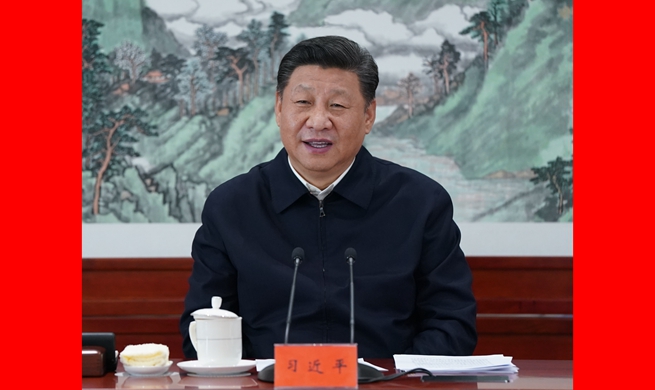HOUSTON, Jan. 26 (Xinhua) -- Oil prices fell slightly during the week ending Jan. 25, with the price of West Texas Intermediate (WTI) for March delivery down by 0.2 percent and Brent crude for March delivery down by 1.7 percent.
In the previous week ending Jan. 18, oil prices extended increases. WTI increased by 4.3 percent, and Brent crude increased by 3.7 percent. At the end of the week, WTI settled at 53.80 U.S. dollars a barrel, while Brent crude closed at 62.70 dollars a barrel.
The International Monetary Fund (IMF) on Monday revised its outlook for global economic growth in 2019 to 3.5 percent from its previous forecast of 3.7 percent.
Meanwhile, a separate report by the United Nations on Monday cautioned that a worrisome combination of development challenges could further undermine global growth.
On Tuesday, oil prices dipped as signs of global economic slowdown stoked concerns about oil demand. WTI fell 1.23 dollars to settle at 52.57 dollars a barrel, while Brent crude slid 1.20 dollars to close at 61.50 dollars a barrel.
The clear global slowdown sparked concerns among traders about potential softening demand for oil, said experts.
On Thursday, oil prices were mixed as traders looked to the possibility of U.S. sanctions on Venezuelan oil sector and a weekly surge in U.S. crude stockpiles. WTI climbed cents to settle at 53.13 dollars a barrel, while Brent crude declined 5 cents to close at 61.09 dollars a barrel.
On Friday, oil prices gained as concerns over tighter global supply amid the threat of U.S. sanctions on Venezuelan oil sector outweighed surging U.S. stockpiles.
As tensions between the administration of Venezuelan President Nicolas Maduro and the self-proclaimed interim president Juan Guaido continue, officials and experts worldwide have voiced their concerns over the situation, appealing for dialogue while calling for the issue to be resolved without outside influence.
In the coming weeks, traders are expected to pay a close eye on U.S. threat of sanctions on Venezuela, which would lead to a tighter market.













